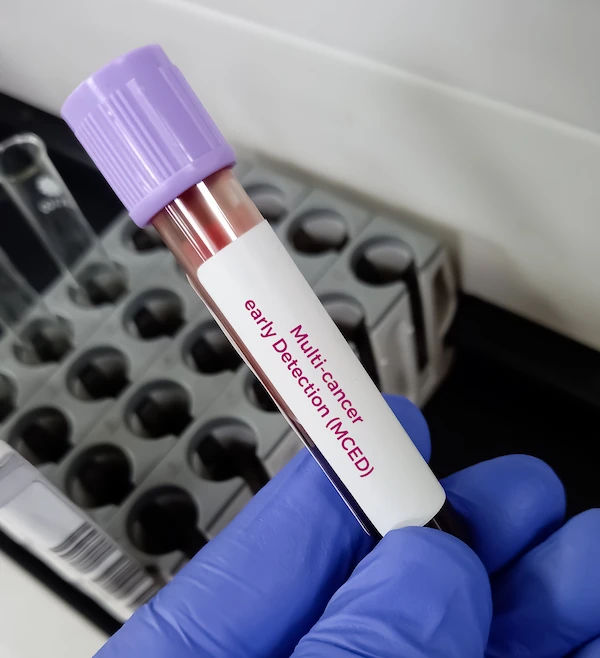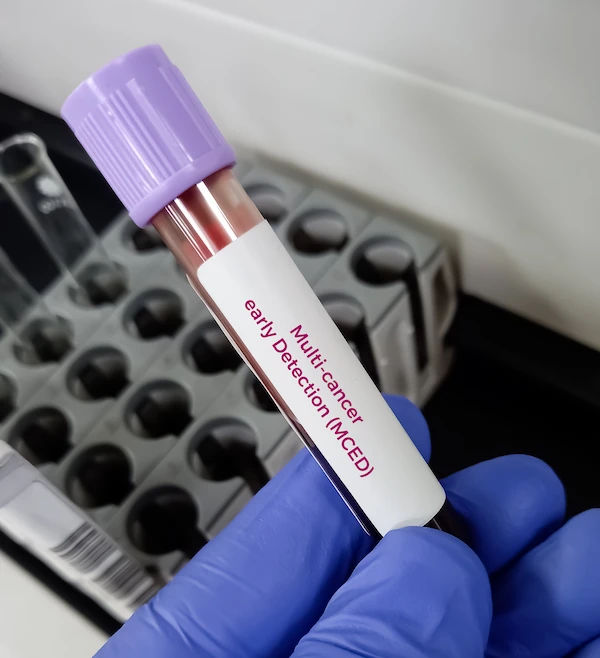Can CA 125 Detect Cancers Beyond the Ovary? What the Evidence Says
CA 125 is primarily known for ovarian cancer, but it can also rise in cancers like those of the lung, breast, and pancreas. Discover when this test may offer broader insight.


Blood-based tumour markers can be helpful in early detection and improved monitoring. Thus, understanding the CA 125 test uses is key to making informed health decisions, especially for women over 35 years and wellness explorers. Though the test is primarily known for monitoring ovarian cancer, there has been a growing interest and confusion about whether the CA 125 test uses extend to other cancers as well. Questions have arisen about CA 125 for other cancers, such as breast or lung.
This comprehensive blog dives into the evidence and explores whether the blood test can detect cancers beyond the ovary reliably. By addressing its broader applications and clearing the confusion, individuals can gain clarity on its role in cancer marker monitoring.
What is CA 125 Used For?
The CA 125 test is a blood test that helps in measuring the level of cancer antigen 125. This is a protein that is found in the blood. However, elevated levels of the same can sometimes indicate the presence of certain cancers or other medical conditions.
Below are a few primary uses of CA 125:
- Monitoring Ovarian Cancer Treatment: CA 125 can be used for tracking how well the treatment is going in women already diagnosed with ovarian cancer. It can also help in tracking if the cancer has returned.
- Detecting Ovarian Cancer in High-Risk Groups: CA 125 can be used as a surveillance strategy for women with a strong family history of ovarian or breast cancer (especially those with BRCA1/BRCA2 mutations).
- Evaluating Unexplained Pelvic Symptoms: CA 125 may be a part of a diagnostic workup to help evaluate unexplained pelvic symptoms in women with abdominal bloating, pain or changes in urinary habits.
- Post-Treatment Surveillance: After cancer treatment, CA 125 can help in monitoring for cancer recurrence. However, it is typically used alongside imaging and clinical exams.
CA 125 may not be designed as a general population screening tool, but in specific cases, particularly involving ovarian cancer, it provides valuable insights for diagnosis and disease management.
Schedule an Assessment and Get Your Health Checked
Can CA 125 Detect Other Types of Cancer?
Although CA 125 is most commonly linked to ovarian cancer, scientific studies and clinical practice suggest that it may rise in the presence of other types of malignancies. However, the specificity and sensitivity of the marker may widely vary depending on the type of cancer and its stage.
Below is how CA 125 can be used in detecting other types of cancer:
1. Breast Cancer
Though not standard, some aggressive or metastatic breast cancers may show higher CA 125 levels. However, it may not be a reliable primary marker in this case.
2. Lung Cancer
CA 125 can sometimes be elevated in non-small cell lung cancer. This can happen, especially in later stages or with pleural involvement.
3. Pancreatic Cancer
Some patients with pancreatic cancer can exhibit elevated CA 125 levels. It is, however, typically used in conjunction with other markers such as CA 19-9 for better accuracy.
4. Endometrial (Uterine) Cancer
In advanced cases, CA 125 may get elevated, mainly if the cancer has spread beyond the uterus. It may also be used for monitoring recurrence post-treatment.
5. Colorectal Cancer
For colorectal cancer, CEA is more commonly used. However, CA 125 can get elevated in metastatic cases, but it is not routinely used for diagnosis or monitoring.
6. Peritoneal and Fallopian Tube Cancer
These cancers can often produce CA 125, and the test is routinely used in diagnosis and monitoring, much like ovarian cancer.
Though CA 125 is not the first-line diagnostic tool for non-ovarian cancers, it may serve as a supportive tool, particularly in advanced or metastatic cancers. It can play a supportive role when used in combination with other diagnostic methods.
How to Interpret CA 125 Results?
One of the most prominent challenges with CA 125 isn’t in its measurement, but in its interpretation. People can avoid unnecessary anxiety by understanding what the numbers mean, which can lead to more informed health decisions.
1. What Do the Numbers Mean?
Here’s what the numbers may mean in CA 125 results:
- Normal Range (under 35 U/mL): This can generally be considered normal. However, this doesn’t rule out the presence of cancer.
- Mild Elevation (35-100 U/mL): This may be caused by benign conditions such as pelvic inflammatory disease (PID), endometriosis, menstruation, pregnancy or liver disease.
- Moderate to High Elevation (>100 U/mL): This may be more concerning, primarily when associated with symptoms or imaging results suggestive of malignancy. However, further diagnostic steps are necessary.
- Rising or Falling Trends: The trend of CA 125 over time can be more valuable than a single reading in cancer monitoring. A rising trend could suggest progression, while a declining level may reflect treatment response.
2. Factors Influencing Test Results
Below are a few factors that can influence test results:
- Age and Menopausal Status: Post-menopausal women with elevated CA 125 can have a higher risk of malignancy compared to premenopausal women.
- Menstrual Cycle: Levels may see an increase during menstruation. However, this must be factored into the timing of testing.
Coexisting Conditions: Fibroids, infections, and benign cysts can cause elevated levels.
3. Seamless Access to CA 125 Testing
Platforms like Apollo 24|7 make it easier for everyone to book a CA 125 test hassle-free and at an affordable rate. The platform offers online booking via app and website with the option of home sample collection, making it accessible for all. It also provides timely digital reports. Individuals can also consult with their healthcare experts for interpretation or follow-up.
CA 125 test results should always be interpreted within a clinical context and never in isolation. It is important to understand here that a normal level may not always guarantee all-clear, and an elevated result may not always confirm cancer.
Limitations of the CA 125 Test
Despite its value, CA 125 has a few limitations that every patient should be aware of. It is essential to understand what this test can and cannot do to help avoid over-reliance on it as a standalone diagnostic tool.
Below are a few key limitations:
- Variable Sensitivity: In especially early-stage ovarian cancer, CA 125 may not be elevated, which can lead to false reassurance.
- Fluctuations Over Time: CA 125 can naturally vary, making it challenging to interpret a one-off test result without additional information or repeat testing.
- Low Specificity: CA 125 can be elevated in benign conditions, which may reduce its effectiveness as a definitive diagnostic tool for cancer.
- Not Ideal for Screening the General Population: Routine CA 125 may not be recommended for women without symptoms or a high-risk family history due to the potential for false positives.
- Not Specific: As it can rise in various malignancies and benign conditions, CA 125 can lack specificity, which may be needed for confirming cancer type.
CA 125 can be considered a valuable supporting tool, but not a definitive diagnosis. It can help in monitoring known conditions or high-risk individuals and may not be considered for broad screening.
Given the complexities around CA 125, it is essential to have thoughtful discussions with the doctor before and after the testing. This may ensure the correct interpretation of the results and choosing next steps wisely.
Final Thoughts
The CA 125 test can be a valuable tool in the diagnostic and monitoring arsenal, particularly in ovarian cancer. It can, however, also be used in detecting other cancers, such as lung or breast cancer, but only as a supplementary tool and not primary. It is essential to understand the importance and limits of the CA 125 test to avoid misinterpretation and lead toward making informed health decisions.
Platforms like Apollo 24|7 can help individuals access accurate CA 125 testing at an affordable price, with home collection, digital reports and guidance from healthcare experts at their fingertips.
Schedule an Assessment and Get Your Health Checked




